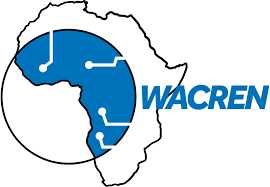Three more African countries, Benin, Burkina Faso and Côte d’Ivoire, have connected to the specialised internet network for research and education enabled by the West and Central African Research and Education Network, or WACREN.
This represents a step forward while most countries on the continent still lack adequate digital infrastructure and systems to support higher education during the COVID-19 pandemic.
The connection of the three countries to the WACREN network was partly funded by the European Commission through AfricaConnect2, a project aimed at supporting high-capacity internet networks for research and education across Africa.
According to a World Bank report, Africa contributes only 3% of the world’s research output. Reasons for this include inadequate digital infrastructure and a general lack of political will to change the status quo.
Another key challenge is the largely unregulated and uncompetitive telecommunications market in the continent’s four corners, including West and Central Africa.
The situation has led to an undesirable monopolistic posture on all levels of the connectivity infrastructure – from cable landing stations to connectivity within a city, between landing stations, connectivity to points of presence within a city, or international connectivity to landlocked countries.
This makes the addition of the three francophone countries to the WACREN network all the more important. It will further research and education in these countries and beyond.
More researchers, scientists, lecturers and students can now access high-speed, secure data communications networks for scientific collaboration to discover solutions to local and global problems.
Three other West African countries, Ghana, Nigeria and Togo, have been connected to high-speed internet networks under the same project.
At the launch of the new connections, WACREN CEO Dr Boubakar Barry called on other countries to double their steps to connect to the network as there are multiple benefits available to research and education communities. He announced that Mali will be the next country to connect to the WACREN network.
Hans Christian Stausboll, a senior European Commission official, expressed the commission’s delight at the potential for users of the network to join the fight against the pandemic and climate change.
Stausboll confirmed the commission’s commitment to helping its African partners to digitally transform their higher education in line with the EU-AU digital transformation agenda.
At the launch event, ministers from all three of the newly joined countries spoke of how crucial the connection is for their national agenda of transforming higher education to make it more relevant and solution-driven.


